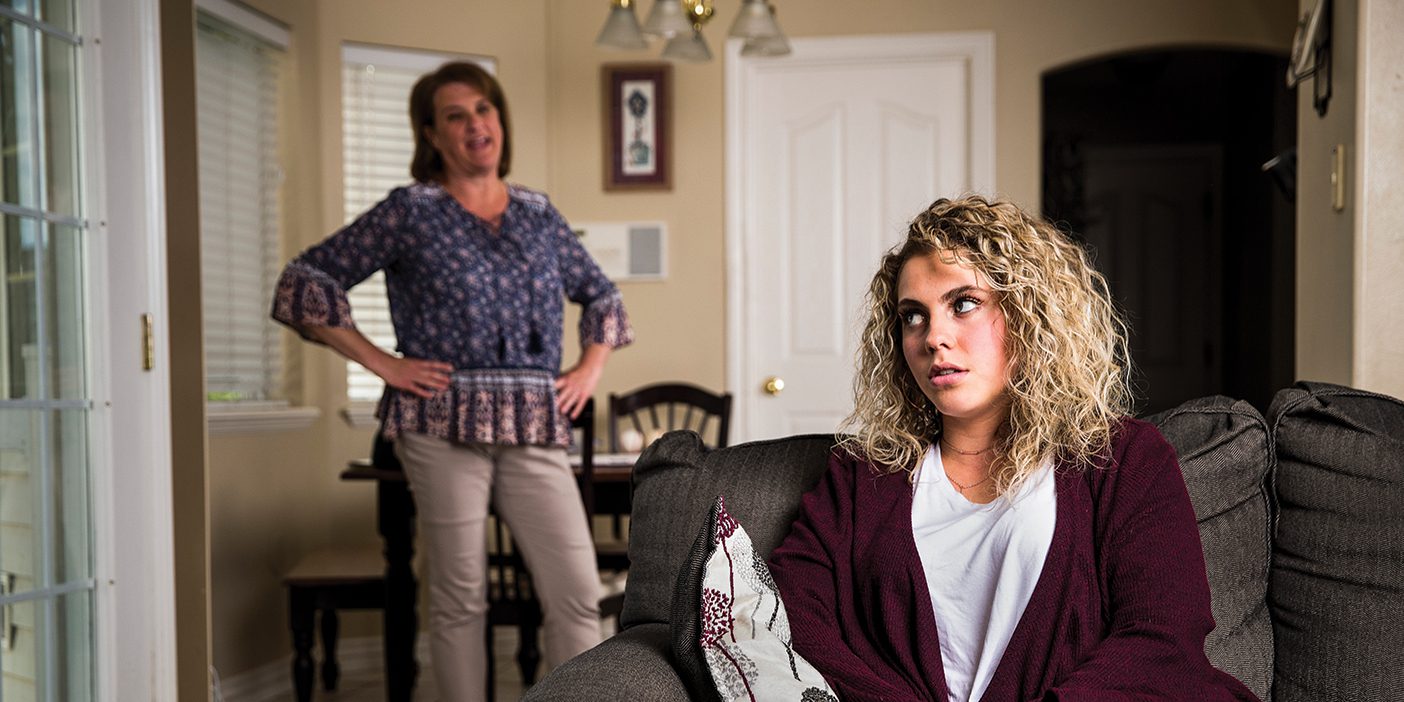Helping kids manage their emotions well means media shouldn’t be the go-to pacifier.

You’re in the grocery-store aisle, and your toddler starts whining about buying her a treat. You say no, and her whines turn to wails. Other customers shoot you disapproving looks, so you grab your phone, bring up a kids app, and hand the phone to your daughter. She immediately quiets, entranced by the bright colors and stimulating movement.
Most parents have experienced scenarios like this, and most have probably worried about their kids’ screen time. Their worries are well placed, says family-life professor Sarah M. Coyne, lead author on a study recently published in the journal Computers in Human Behavior. She and her colleagues warn that parents should wise up if they’re using media to shut down toddlers’ trying moments.
“Putting a screen in front of a crying child is quick, easy, and very effective,” says Coyne. “It’s a short-term gain but a long-term loss because, on the whole, it’s teaching kids not to deal with their feelings. It doesn’t teach them to cope but teaches them to rely on media to handle their emotions.”
The grocery-store moment is an opportunity to stop, take some time, and talk to your toddler, she says, with words such as, “I can see you’re feeling really frustrated. Are you bored? Are you angry? What can I do to help you out?” If you can help your toddler develop emotion knowledge, she’ll be better at regulating her emotions later on.
“Your goal as a parent is to help children learn to manage their emotions so when they leave their house, they can regulate painful feelings on their own,” says Coyne.
Coyne hopes her research in this area can help persuade parents to find ways to minimize screen time for their infants and toddlers. Parents can keep the following four points in mind as they help children develop emotional intelligence.
1
Signs your child might be overreliant on media include constantly asking for a screen, having a tantrum when a game or show is over, and regularly sneaking or lying about media, says Coyne. If your child can’t figure out any other way to manage his emotions, you may be entering into problematic media use. You can use media sometimes as a tool for relief, but make sure it’s not the only tool or the main one, she says.
2
Using a screen to distract from distressing feelings is not always a problem. It’s about what you’re doing with the screen, says Coyne. If you hand your child your phone to FaceTime with Grandma, you’re distracting him but also encouraging interaction and connection. Video games, on the other hand, are designed specifically to hit pleasure centers and hook users into wanting more. When you know your child will be in a situation that’s boring, Coyne suggests having a backpack full of books or toys. If you must use a screen, run educational media, which tends to be less problematic than other content, she says.
3
For parents already down the media-reliance road, Coyne suggests weaning media away slowly and replacing it with something that meets the child’s needs. Parents can also learn to “emotion coach” their children (based on the work of researcher John Gottman), she says, which means tune into their emotions, help them name their feelings, validate their feelings, and help them come up with ways to either solve a problem or cope with it.
4
It’s okay to use screen time in a case of emergency or on airplane flights. “Long-haul flights are a totally different ball game, and it is my expert opinion that you can use as much media as you want to on those flights. You just have to survive them,” says Coyne.












